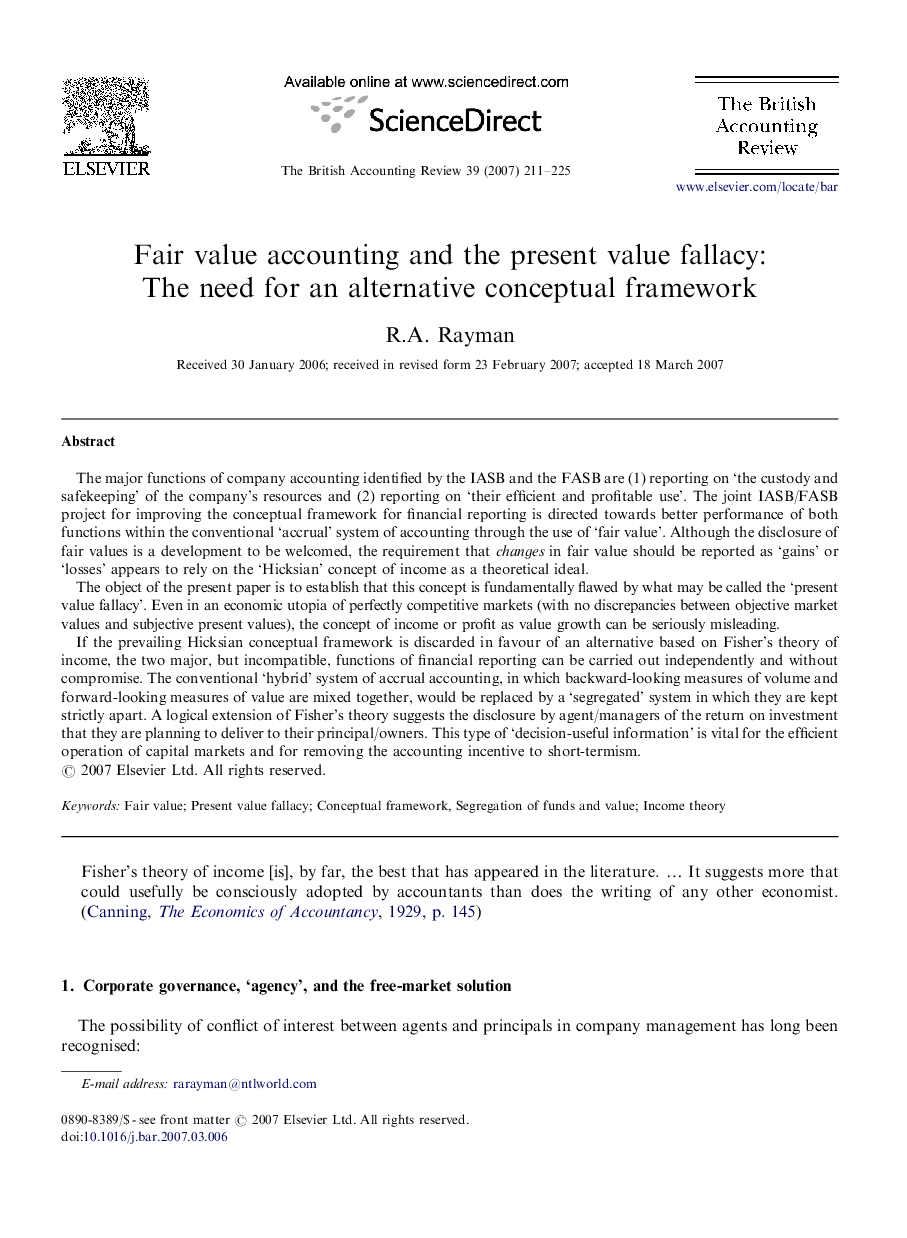| کد مقاله | کد نشریه | سال انتشار | مقاله انگلیسی | نسخه تمام متن |
|---|---|---|---|---|
| 1004160 | 937746 | 2007 | 15 صفحه PDF | دانلود رایگان |

The major functions of company accounting identified by the IASB and the FASB are (1) reporting on ‘the custody and safekeeping’ of the company's resources and (2) reporting on ‘their efficient and profitable use’. The joint IASB/FASB project for improving the conceptual framework for financial reporting is directed towards better performance of both functions within the conventional ‘accrual’ system of accounting through the use of ‘fair value’. Although the disclosure of fair values is a development to be welcomed, the requirement that changes in fair value should be reported as ‘gains’ or ‘losses’ appears to rely on the ‘Hicksian’ concept of income as a theoretical ideal.The object of the present paper is to establish that this concept is fundamentally flawed by what may be called the ‘present value fallacy’. Even in an economic utopia of perfectly competitive markets (with no discrepancies between objective market values and subjective present values), the concept of income or profit as value growth can be seriously misleading.If the prevailing Hicksian conceptual framework is discarded in favour of an alternative based on Fisher's theory of income, the two major, but incompatible, functions of financial reporting can be carried out independently and without compromise. The conventional ‘hybrid’ system of accrual accounting, in which backward-looking measures of volume and forward-looking measures of value are mixed together, would be replaced by a ‘segregated’ system in which they are kept strictly apart. A logical extension of Fisher's theory suggests the disclosure by agent/managers of the return on investment that they are planning to deliver to their principal/owners. This type of ‘decision-useful information’ is vital for the efficient operation of capital markets and for removing the accounting incentive to short-termism.
Journal: The British Accounting Review - Volume 39, Issue 3, September 2007, Pages 211–225